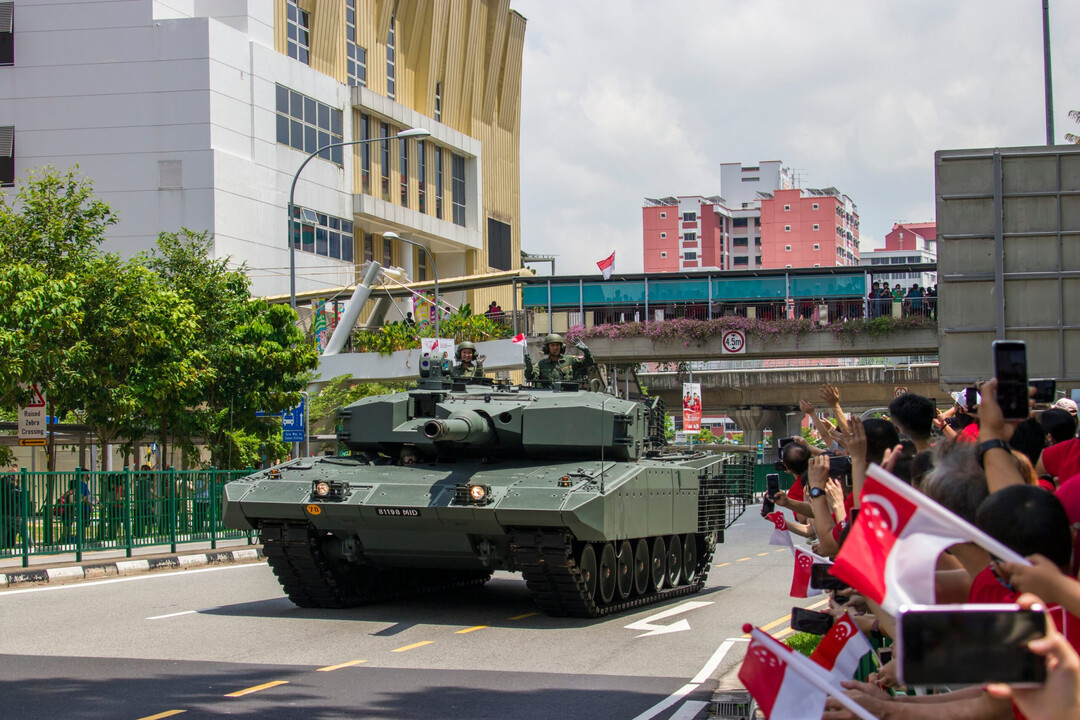
CHRISTCHURCH, New Zealand – Singapore has announced a significant 12.4% increase in its defense budget for FY2025, reaching S$23.4 billion (US$17.4 billion). This surge in spending underscores the city-state's commitment to modernizing its armed forces in response to a complex and increasingly uncertain regional security environment.
The substantial budget allocation aims to address project delays and disruptions caused by the COVID-19 pandemic, while also facilitating the acquisition of advanced military hardware. Defence Minister Ng Eng Hen, however, has signaled that the growth rate will moderate in the FY2026 budget to maintain defense expenditure within the government's self-imposed cap of 3% of gross domestic product.
Collin Koh, an analyst at the Institute of Defence and Strategic Studies at Singapore’s S. Rajaratnam School of International Studies, emphasized the importance of this sustained investment. "Singapore has definitely seen the writing on the wall where it comes to the evolving security landscape – increasingly fraught, uncertain and all the more so when international rule of law is coming under strain," he said.
The budget prioritizes the acquisition of cutting-edge military assets, reflecting a strategy of swift procurement rather than solely relying on "threat-based planning." Key acquisitions include:
Submarines: Singapore has ordered two additional Type 218SG Invincible-class submarines from thyssenkrupp Marine Systems, bringing the total fleet to six.
The first two submarines were commissioned in September 2024, and the second pair is expected to be operational by 2028.
This expansion reinforces Singapore's underwater capabilities, crucial for maritime security in the region.
Maritime Patrol Aircraft: The Ministry of Defence is evaluating options to replace its aging fleet of five Fokker 50 maritime patrol aircraft, which have been in service since 1993.
The Airbus C295 and Boeing P-8 Poseidon are under consideration, with the latter offering significantly enhanced capabilities for maritime surveillance and threat detection. The P-8 Poseidon, in particular, is known for its advanced anti-submarine warfare and long-range surveillance capabilities.
Fighter Jets: Singapore has confirmed the purchase of eight F-35A fighter jets, adding to the previously ordered 12 F-35B short takeoff/vertical landing variants. This acquisition strengthens the nation's air defense capabilities and ensures interoperability with key allies.
Land Forces: The Singapore Army will receive the new Titan 8x8 infantry fighting vehicle, equipped with a 30mm cannon in an unmanned turret and a counter-drone system. The Titan is believed to be based on ST Engineering's Terrex s5 platform, known for its advanced mobility and firepower.
The 24 HIMARS rocket launchers will undergo a midlife upgrade to enable the use of more advanced munitions, likely including the Army Tactical Missile System (ATACMS) and the Precision Strike Missile (PrSM), enhancing long-range precision strike capabilities.
Counter-Drone Capabilities: Recognizing the growing threat from unmanned aerial systems, the military has established a Counter-UAS Development and Operations group.
This group will develop operational concepts and deploy a range of sensors, jammers, and weapons to counter drone threats.
Naval Modernization: The navy's first Multi-Role Combat Vessel, designed to serve as a mothership for unmanned systems, is scheduled to be launched this year, marking a significant step in naval modernization.
Cyber Defense and Digitalization: The establishment of the Defence Cyber Command and a dedicated organization for military digitalization reflects Singapore's commitment to enhancing cyber security and leveraging advanced technologies across all branches of the armed forces.
In addition to hardware acquisitions, Minister Ng emphasized the importance of strengthening international partnerships, highlighting the Five Power Defence Arrangements and high-level exchanges with major powers like China and the United States. "We’re not a threat to anyone, and wish all to be friends,” said Ng. “But as the saying goes: Strong fences – and I would add, defenses – make good neighbors.”
This substantial increase in defense spending demonstrates Singapore's proactive approach to safeguarding its national security in an era of heightened geopolitical uncertainty.
[Copyright (c) Global Economic Times. All Rights Reserved.]






























